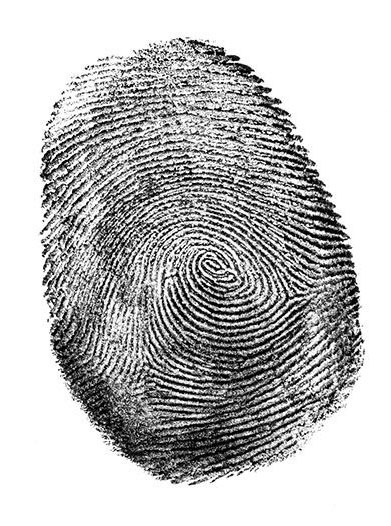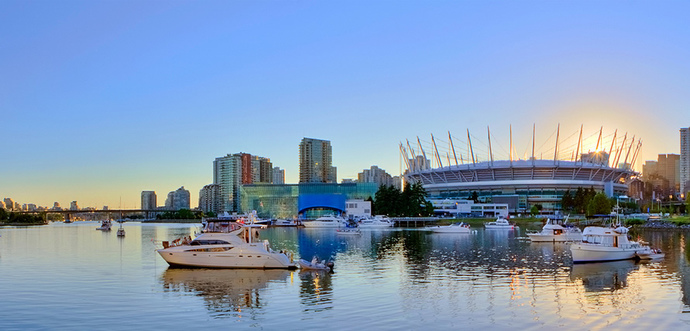
Seeing the world is great. Travel enriches the mind, expands horizons, and curious, open-minded people learn about other cultures which makes the world seem less vast and more connected.

But sometimes travelling can suck. It can be logistically stressful, exhausting, unfamiliar, uncertain, and uncomfortable at times. So in that vein (and because I've had plenty of my share of stress with it), here are some tips you should know when lawfully visiting Canada.

The Canada Border Services Agency (CBSA) is the governing agency facilitating travellers and trade (essentially, people & product.)
I'm not going to talk about immigration policies and procedures (that is a whole other ball of wax, and too much to address here); this is info for travellers and tourists coming on temporary visits.
Snooze Warning: This is not going to be fun or funny. It's just legal information, nothing entertaining. Sorry.
Ports of Entry

There are three ways to enter Canada - by vehicle, by plane, or by boat. The rules are exactly the same at any port of entry, no matter whether it is land, air, or marine. At all ports of entry, you may be asked any number of the following questions, so here's what to expect:
What I.D. (Identification Document) Do You Need?

A passport is recommended because it is the only reliable and universally-accepted travel and identification document for the purpose of international travel. If you have a travel visa, bring this with you as well.
For exceptions and authorizations, see: https://www.cbsa-asfc.gc.ca/travel-voyage/td-dv-eng.html#s3
Are you a NEXUS member? I recommend it if you plan frequent travel between the U.S. and Canada. It will streamline your travel and avoid some delays, allow you to skip some screenings, and go in shorter lines. https://www.cbsa-asfc.gc.ca/prog/nexus/menu-eng.html
What's the Purpose of Your Visit?
Answer honestly. Ex: Vacation, tourism, special event, visit someone(s), meet up with someone you met online (aww, good luck), passing through to get to somewhere else like en route to a cruise ship trip, shopping, purchase something listed online for sale, etc. All acceptable answers.
Where Will You Be Staying?
You will need to answer where you will be staying, with address, whether that be a friend or family member's home, hotel, temporary private rental, etc.
Do You Have Anything to Declare?
What do you need to declare? All fruit, meat products, money, weapons. You'll be filling out a Declarations Form and handing it to an officer to review, where further questioning may take place. Afterwards, they keep the form for their records.
Fruit & Meat


All fresh fruit, raw, cooked, and cured meat, are prohibited.
And when they say "all fruit" they mean all fruit. Like, not an orange, a banana in your pocket... nothing.
You also cannot bring pet food, even if it is in sealed cans. It's a prohibited meat product.
Why?
"Certain plants and animal products are prohibited because they can harm the agricultural industry. The concern is that if the products are disposed of inappropriately, they could make their way into the food supply and agricultural system."
Exceptions?
The only exception is if you first obtain a Health Certificate from the country of origin, as well as Canada.
What Happens if I Do it Anyway?
Canada’s laws on food products are taken seriously. Attempting to bring meat in is considered Smuggling, and comes with hefty fines.
Quantities are weighed and tallied. Fines are based on quantity, total weight, travel history, and interpretations of honesty via declarations. The minimum fine for a first offence of a small volume is $250 CAD.
How Much Money Do You Have With You Today?

You must declare all money except credit cards.
This includes cash, traveller's cheques (aka checks), bars, bricks, and high-value coins.
Why?
Because you must have roughly enough money to meet the needs of your stay while visiting Canada. You become a risk if you cannot financially support yourself during your stay.
(Credit cards are an acceptable form of payment to cover your needs. You do not need to have a lot of cash on hand.)
Travellers are required to declare all currencies valued over $10,000 CAD.
You must declare all currencies - that means all, from every nation, broken down by that currency and then converted into CAD. You must declare all currency, of any amount, but you will only pay duty on the amount that exceeds $10K.
Why?
Large sums of untracked money are often associated with illegal activity. Every country wants to keep tabs on the flow of currency. Over $10K, you are considered 'importing' currency. CBSA keeps tabs of both incoming and outgoing currency to combat money laundering.
Everything under $10K is admissible without penalty or fee. But if you lie about how much you’re carrying, regardless of value, they can issue you a penalty. The penalty for not declaring over $10,000, on a first offence, is $250. So by lying and trying to avoid paying the duty, you could be looking at duty + a penalty. (And the lowest penalty is $250. It could be considerably more than this, depending on the circumstances, and the custom officer's judgement.)
They may also ask you the source of the money, which is a general question, and does not require extreme detail. "It's a gift," will result in further examination. From whom? And yes, even 'gifts' must be declared. Or, "It's from my job." Ok, what kind of work do you do, where do you work? Expect these types of questions.
Drugs & Other Fun Stuff

Prescriptions
All prescription meds need to be in marked bottles identifying the prescription and subscribing doctor. You cannot decant and combine into an unlabelled container.
Cannabis (aka Weed)
Cannabis use is legal recreationally throughout all of Canada. This is a federal law. (You're welcome.) Be safe, and have fun. 🚬
It is not illegal to bring weed into Canada.
But it is illegal to bring weed into the U.S. You therefore cannot pass through Canada, on your way to the U.S. (such as Alaska, or a cruise ship originating in Canada, with cannabis in your luggage. You will not be charged or arrested, but if you do not surrender it 'to the crown' you can be denied entry and need to return home.)
Smoking (All Kinds, Including Vaping)

You cannot smoke anything (cigarettes, weed, cigars, vapes) on planes, within restaurants, or on public transit, so check about the specific locations it's allowed. Outside, in parks, public areas, and away from office buildings is fine. Most hotels don't allow it within their rooms. You have to step outside, away from the building. But you can use edibles anytime.
Narcotics
Narcotics are illegal and prohibited under the Controlled Drugs and Substances Act. Do not attempt to bring any in, or purchase any once inside the country.
A lie is often an indicator of another lie, a concealment of something else that actually is actually illegal.
Not Everything They're Asking is Because it's Illegal
A lot of their questions are not specifically about something that is illegal. What they are doing is checking a person’s credibility.
Ex: Asking a 20 yr old, Have you ever done any narcotics at all?... if the kid says “No. None.” No? Never? “No, never.” What about marijuana? “Well, yeah, one time.” How long ago? “Mmm, like a few months ago. Maybe a year.” How about recently? “No.” If we swab your luggage are we going to find cannabis? “Uh... yeah maybe.” How long ago did you take some? “Like two days ago.”
Their response: “We don’t care about the marijuana, ok. But you lying to us gives us an indication that you may be lying about other things. Now we have cause to search for any contraband on you and in your luggage.”
Travellers from certain countries are questioned and searched more thoroughly. They're looking for drug mules, and people bringing illegal drugs into Canada. If you have recently been to a party where others were doing drugs, you need to tell them this, because if they suspect and question you, and they swab your luggage, you now cannot say "I have no idea how that got there." They can presume it was you.
Oh, and don't go sick, with your eyes all blood shot from a cold, and then take some pseudoephdrine antihistamines and look like you've been drugged, wearing sunglasses, and some older guy is driving (who says he's the stepfather but has a different last name so they don't trust him. Yeah, they don't like that either. (In the case, the U.S. But you know, same deal.)
Criminal History


Visitors with felonies may not be permitted entry. However, all countries have slightly different laws, and Canada may not deem the same act unlawful, or to the same degree, as another country. You must report all criminal charges (whether it was thrown out or convicted), and Canada decides if you will be allowed to enter. They obviously treat felonies differently than misdemeanours.
How Will They Know?
They have access to all criminal records. Whether it was a conviction or just a charge, they know. There is no point in lying about your record.
Most people fess up to something minor, only to ignore the felonies, etc., which only leads to more trouble and investigation, because they are lying and concealing and losing credibility by the minute.
If in doubt, if you have a criminal history, you need to check the specific laws before attempting travel. The safest is not to attempt travel within 10 years of the recorded crime. You may be denied entry, and if it is deemed (based on their judgement) that you knowingly lied and tried to obfuscate this history, or come in before the 10 years is up, you could be permanently banned from future entry as well.
Purchases/Shopping Duties & Taxes
"When you return to Canada, you have to declare all of the goods you acquired while outside Canada, such as purchases, gifts, prizes or awards that you are bringing with you or are having shipped to you. Include goods that are still in your possession that you bought at a Canadian or foreign duty-free shop. As well, make sure you declare any repairs or alterations you made to your vehicle, vessel or aircraft while you were out of the country."
https://www.cbsa-asfc.gc.ca/travel-voyage/bgb-rmf-eng.html
Want to estimate how much you will owe?
https://www.cbsa-asfc.gc.ca/travel-voyage/dte-acl/est-cal-eng.html
Exemptions
You may qualify for a personal exemption when returning to Canada. This allows you to bring goods up to a certain value into the country without paying regular duty and taxes.
You are eligible for a personal exemption if you are one of the following:
- A Canadian resident returning from a trip outside Canada;
- A former resident of Canada returning to live in this country; or
- A temporary resident of Canada returning from a trip outside Canada.
- Children are also entitled to a personal exemption as long as the goods are for the child's use. Parents or guardians can make a declaration to the CBSA on behalf of the child.
After 7+ days away, you can claim goods/purchases worth up to CAN$800 CAD. You can purchase $800 CAD worth of stuff (in the U.S.) for any visit over 48 hrs. If you buy over $800 and don’t declare all items, you will pay not only the owed duties and taxes, but in addition, a penalty.
Penalties for undeclared goods range from 25-80% of their value.
You must declare the actual value you paid. If you attempt to undervalue the item(s) to try to save money, the penalty for undervaluing is often more than the duty that was owed.
You can purchase alcohol and tobacco products, sometimes at a reduced rate, but you do have to declare them and pay duty (unless you purchased them at a duty-free shop, where the taxes are built in.)
Not many people roll their own tobacco cigarettes, so when they see hand-rolled, they will investigate further. It is not contraband, but it does alert them to inspect closely, as it could easily be drug-related.
Gifts

For legal residents returning to Canada you must declare all gifts you received from others, and their values. Gifts over certain amounts are considered imported, and charged duty.
If you do not provide receipts, officers will internet search the items and estimate values.
If you claim a designer bag (ex: Chanel, Coach, Louis Vuitton) was a gift, and it looks brand new and in excellent condition, regardless of whether it was a gift or you actually purchased it yourself, you will have to pay duty on it. The bag [or other items] will be seized until you pay the duty. If you pay it immediately, the item will immediately be released back to you.
Marine Ports of Entry

The CBSA Marine Unit protects the wet frontier.
Random stops and searches apply, just like any other border crossing. Passports of all travellers, and boat registration certificates must be presented.
Canada’s territorial waters extend 12 nautical miles out to sea, that’s 7 million square km of ocean. The base for the West Coast CBSA Marine Unit is Pender Island (one of a cluster of Gulf Islands.) During the summer time, this federal harbour sees approximately 100 boats/day. The Gulf Island is a popular tourist destination, and is also a transit area for travellers heading to Alaska.
You are allowed to travel with a registered firearm in transit, if stowed properly, en route into the U.S. (Alaska, etc.) The firearms and ammunition must be declared. Serial numbers must match the traveller’s Declaration and be registered in the U.S. A $25 fee is paid to transit the weapon into the U.S.
See 'Weapons' category for admissable and prohibited items.
Pornography
Pornography is legal and admissible into Canada.
However, laptops and external hard drives may be randomly searched. Coming through Canada for any reason, even such as to go directly to work on a cruise ship as staff, with child pornography or bestiality, digital or otherwise is illegal.
For a detailed and complete list of inadmissables, see my reply to zagor below.
Possession of child pornography is illegal and will result in immediate arrest, incarceration, and deportation.
In the case of child pornography, the traveller will also be placed on an immigration hold so that once the criminal charges are dealt with, they will be denied future re-entry into Canada.
Weapons

You must declare all weapons and firearms at the port of entry. Firearms require a registration permit. Many weapons are considered prohibitive and will not be allowed entry. What is legal in one country may not be in Canada.
Check before you go, because weapons may be seized, and you could face prosecution, but in most cases when a prohibited item is found, the options presented to you are to either return back to your country of origin with the item, or you can surrender the item to the crown and proceed into Canada.
Carry-on luggage has the strictest rules about what is prohibited. Examples: Lighters are prohibited, pocket knives, tools such as the 'Pocket Monkey', folded yet sharp keychain items, and any tool or device that is sharp or could be used to stab or inflict pain.
Prohibited Items: (List Not Exhaustive)
- Automatic knives such as switchblades
- Blowguns
- Brass knuckles
- Bullpup stocks
- Centrifugal knives such as flick knives or butterfly knives
- Certain cartridge magazines above a given capacity. Generally, cartridge magazines are limited to 5 rounds for centre-fire, semi-automatic rifles or shotguns and 10 rounds for semi-automatic handguns, with exemptions for certain magazines
- Crossbows designed for one-handed use
- Crossbows 500 mm or shorter
- Constant companion (belt-buckle knife)
- Devices shorter than 30 cm concealing a knife blade (e.g. knife-comb)
- Finger rings with blades or other sharp objects projecting from the surface
- Gravity knives
- Kiyoga or Steel Cobra batons (spring batons)
- Mace or pepper spray designed for use on humans
- Manrikigusari or kusari (fighting chains)
- Morning stars
- Nunchaku sticks
- Push daggers
- Replica firearms
- Silencers/suppressors or devices designed to muffle or stop the sound of a firearm
- Spiked wristbands
- Spring-loaded rigid batons (triggered by a button or lever)
- Shuriken (throwing stars)
- Stun guns
For more detailed information on importing a firearm into Canada, including licensing, registration and permit requirements:
Working within Canada
You are not allowed to work without a work permit. Intention to work, without any approved work permit visa, is case for refusal of entry.
Why?
1. Only citizens are covered in the case of any workplace dangers and accidents that might occur. "You could be putting your health and life at risk." (Subtext: Don't burden the country if you get hurt.)
2. It takes jobs away from Canadians, and that is taken very seriously. (And you can't benefit from a system which you do not pay into. Taxes are what keeps it going.)
How Will They Know?
They have every legal authority to search of all your belongings, including digital devices, to obtain evidence of your intentions within the country. They search phone records, texts, emails, anything and everything looking for details of intent to work, and if they find it, or suspect even without proof, you will either be 1. Denied entry, or 2. Potentially given the opportunity to withdraw your application for entry. If you withdraw, it will not prevent you from attempting re-entry back into the country sometime in the future. A denial is recorded, and may affect future entry.
Oops, I Forgot I Had Tools... (Yeah right.)
Don't try travelling with tools. They are a dead giveaway (even if in the trunk of your car, claiming to be on vacation, with another passenger, even a kid.) The appearance is that the traveller may intend to work.
(Or you could be a teenager with your dad, who's a carpenter and always drives around with his hatchback trunk full of tools, and one day you just want to go for a drive up a mountain or something. Okay? Nope. Not okay. The U.S. is not nice about this either. Booo.)
Temporary Permits
American travellers are eligible to apply for work permits at the border crossing, for some types of temporary work. If the traveller has been very upfront about their intention to work, border security may help the traveller to complete this paperwork, by calling the employer, and seeing if they will fax over a labour contract to the CBSA. But there are no guarantees they will be able to get hold of the employer, and if that's the case, you will be refused entry and have to return home.
Ex: A mountain biker doing filming on a go-pro for a Canadian company at a bike camp in Whistler, B.C., for one month. Even for this scenario, you must have all the appropriate paperwork with details of the work contract from the employer. The at-the-border application is called a Labour Market Opinion. But it's extremely risky to apply for this temporary work permit at the border. It is much wiser to organize all paperwork beforehand and have work authorization and sponsorship in hand to present to the border security official.
Exceptions?
Are There Any Exceptions? Yes. Foreign buskers (street performers) can work in Canada without a permit. But you must declare it. Some musicians hide contraband in their instruments so they may be searched. Security is also looking for drug mules - persons who are paid to carry contraband into the country.
And Finally, Just an Interesting Map of Who in the U.S. Holds the Most Passports

Happy Travels...


No, it doesn't snow all the time!


 Sexual Relationships
Sexual Relationships  Sexual Health
Sexual Health 
What Girls & Guys Said
7 23Nice, this would've been usefull when I moved to Canada last year 🙂 Luckily my work took care of most things.
Additionally, if you move to Quebec and you don't speak French, some people can act very annoyed.
Did I miss the preregistration of your Covid vaccination on line?
Also the 72 hour Covid-19 test before entering a cruise ship?
I wrote this a long time ago, before Covid.
@amandayvr. Oh, okay!
Why can't I just walk across the border?
Thanks for the good mytake. You have convinced me to never visit Canada as the entry requirements and restrictions rival those of the US.
I know. Swap out the annoyance of the fruit and meat, with the U. S. freaking out about marijuana, and it's about the same. I've crossed over, in both directions, many, many times. I don't like travelling anymore.
Thanks!
Holy jumpin juhosaphat Batman a passport
Good read. And FYI it works both ways we can’t bring fruits and meat into USA either from Canada. I love it hear in Canada but also love travelling to the US. I guess when you live in Canada your entire life the USA is fun to go to.
Yes, true. I came to find out that most of these rules are the same for U. S. entry. (Funny, then, the Americans complaining about how strict and uptight Canada is.)
Anyways, fuck Canadians.
Asshole. And you wonder why America often has the reputation it does. Pieces of shit like you. Thanks for the head's up. I appreciate you not wasting my time knowing I should block you. 👋
And P. S. Litigious motherfucker. Great job, having the worldwide reputation for most frivolous lawsuits.